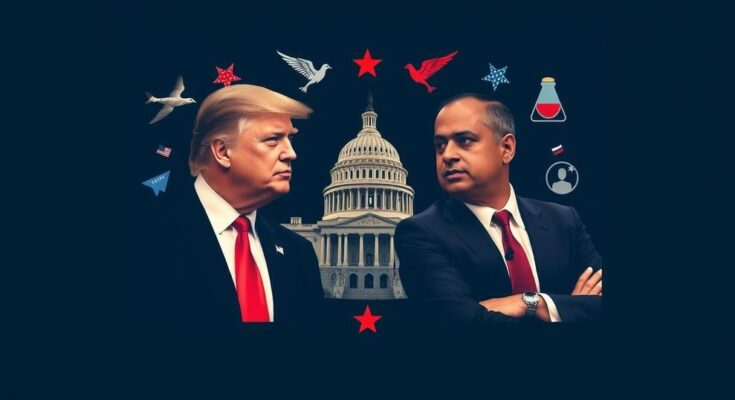Donald Trump has introduced the Department of Government Efficiency (DOGE), led by Elon Musk and Vivek Ramaswamy, aimed at reducing federal spending. However, the initiative’s effectiveness is questioned due to its unofficial status and the need for congressional approval for significant budget cuts. Experts note the complexity of the federal spending framework and express skepticism about ambitious savings targets presented by Musk. Historical precedents highlight challenges in previous reform efforts, raising concerns about whether DOGE will achieve its goals while navigating ethical dilemmas.
Donald Trump has launched a bold initiative known as the Department of Government Efficiency (DOGE), enlisting billionaire figures Elon Musk and Vivek Ramaswamy to tackle what he labels as excessive federal waste. Despite the promises and excitement surrounding the announcement, the actual power of DOGE is uncertain since it lacks official governmental status. This ambiguity raises questions about its capacity to effectuate real cuts in federal spending amidst legislation that safeguards popular programs like Social Security and Medicare. Trump’s vision for DOGE aims to streamline federal operations, reduce regulatory burdens, and eliminate frivolous expenditures. He declared that Musk and Ramaswamy would provide their expertise, concluding their work by July 4, 2026. However, experts express skepticism regarding the feasibility of saving the projected $2 trillion, especially when essential funding is protected by congressional mandates and institutional complexity. Functionally, DOGE’s role seems limited to advisory rather than executive, leaving Congress as the gatekeeper of national spending. Musk, with a substantial fortune and an agenda for cutting bureaucratic overlap, proposes ambitious cuts yet may face institutional inertia. Ramaswamy, coming from a background of anti-establishment sentiment, aligns with these views, proposing the elimination of educational bureaucracies among other reforms. Historical precedents exist for government optimization efforts, notably by Reagan’s Grace Commission and Clinton’s National Performance Review. However, the actual outcomes of these initiatives frequently relied on Congress’s willingness to implement recommended changes. Current observers of DOGE remain wary, asserting that without deep understanding and structural support, the program may falter. Moreover, ethical concerns arise regarding Musk’s vested business interests in federal contracts, complicating the potential for unbiased reform.
The Department of Government Efficiency (DOGE) emerges in an era of perceived government inefficiency, with Trump capitalizing on voter discontent toward federal spending under the Biden administration. By appointing prominent business magnates like Musk and Ramaswamy, Trump attempts to leverage their popularity and unconventional approaches to governance. However, the lack of congressional approval for DOGE’s initiatives poses a considerable challenge as substantial budget cuts require legislative action, highlighting the complexities of enacting the proposed government reforms. Public skepticism looms, especially regarding the claimed capacity to achieve significant savings when a significant portion of federal outlays is legislatively mandated for critical programs that hold deep public support. The historical context of previous federal reforms adds additional layers of intrigue, showcasing that while ambition can be high, the realization of such reforms is often impeded by bureaucratic entrenchment. As the landscape of government efficiency shifts, various stakeholders continue to analyze the potential impacts of DOGE on the fiscal future of the United States, while Musk and Ramaswamy navigate a complicated interplay of influence and ethics.
Trump’s DOGE initiative under Musk and Ramaswamy aims to create significant federal spending cuts but faces considerable challenges. With no formal authority and congressional support required for meaningful reforms, the road ahead is laden with skepticism. Historical attempts at government efficiency serve as a reminder of the intricate dance between ambition and institutional inertia. As the landscape unfolds, the final chapter of DOGE remains unwritten, prompting ongoing debates about government blight and the role of private citizens in public service.
Original Source: www.cbsnews.com



